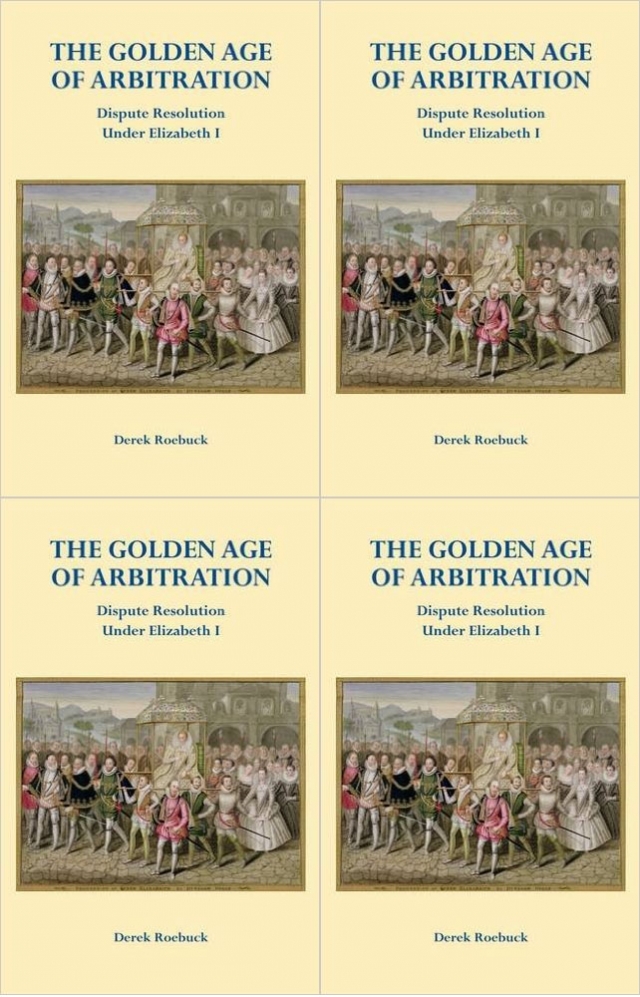Dispute Resolution under Elizabeth I
Book Review

The Golden Age of Arbitration: Dispute Resolution under Elizabeth I by Derek Roebuck
(Holo Books), 2015
365pp., £40, ISBN 978-0-9572153-0-6
Derek Roebuck has, over the last fifteen years, published four books on dispute arbitration covering the Greek, Roman, early English and Middle Age English periods. This new volume examines Elizabeth I's reign during which arbitration became the normal means through which parties chose to settle disputes that they could not sort out themselves. Elizabeth I consciously and determinedly provided a Government mediation and arbitration scheme. A wealth of primary sources show that she had a special concern for women, the poor and anyone disadvantaged by the costs and delays of the law. Her Privy Council arranged arbitrations with no fees and with free legal aid for those who needed it. The archives are voluminous, not only in the Acts of the Privy Council but in the National Archives and local collections.
Her arbitration scheme dominates this book, but the background was private arbitration, arranged by the parties. In Elizabethan England arbitration was the ordinary way to settle a dispute the parties could not end themselves. Each side chose one or more arbitrators and that even number would try to mediate a settlement. If they failed, they would at least try to get the parties to agree on whom they would appoint to decide for them. The arbitrators include well-known personalities: Cecil and Walsingham, Raleigh and Hawkins, Coke and Bacon. Women are shown participating at all levels, as claimants and defendants, in matters of title to land, commerce and all kinds of family squabbles. They could even act as arbitrator or mediator. Elizabeth I herself did both. Many of the disputes were between foreign merchants and some were submitted to their arbitration. What law there was on arbitration, as the courts developed it over the 45 years of the reign, had little impact on practice. But the most important revelation is the Queen's concern for the poor: ‘If the phrases ‘legal aid' and even ‘welfare state' had been coined by then, it may be unwise to assume that Elizabeth I's Government would have used them as terms of abuse.

